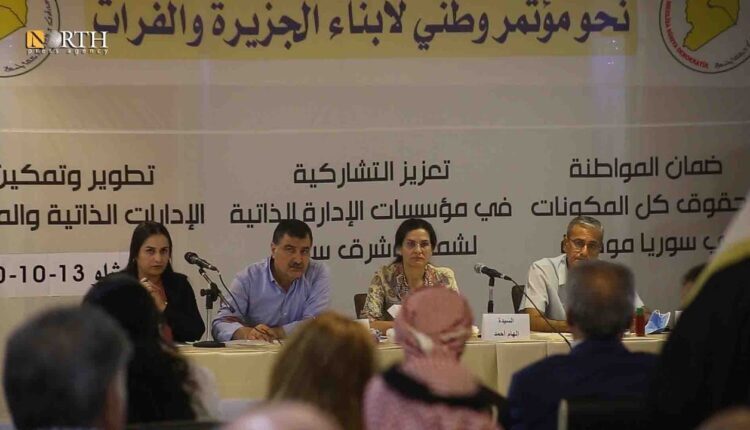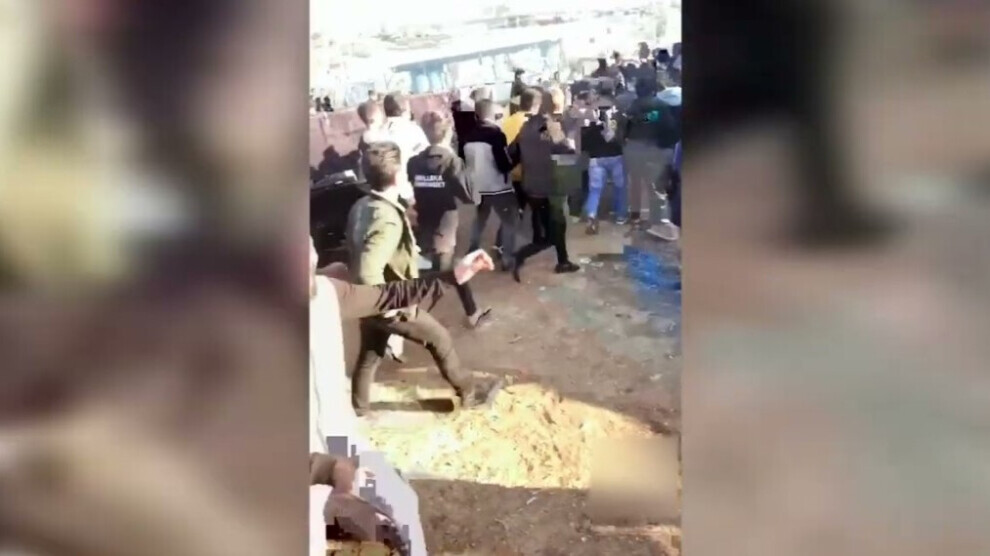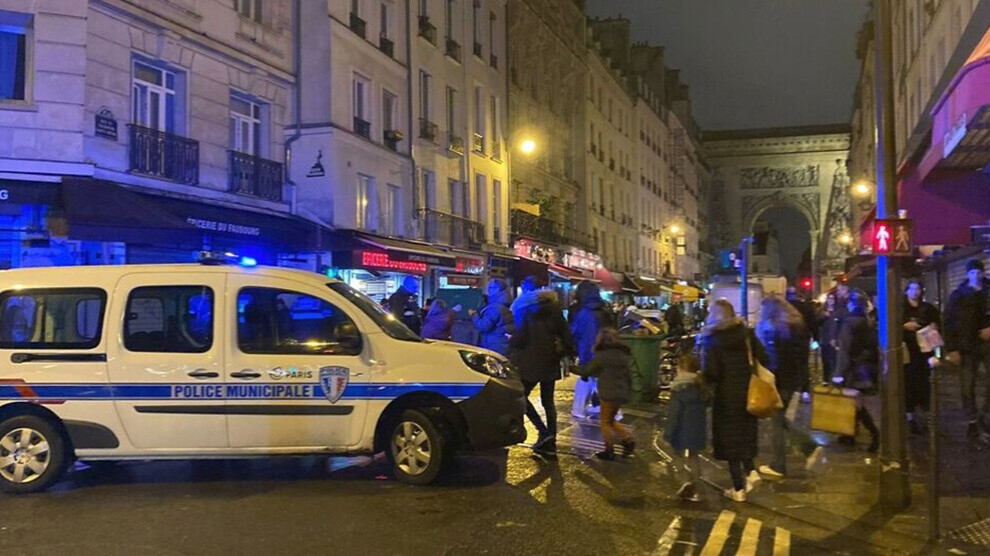Surfer creates island eco-haven with ancient knowhow
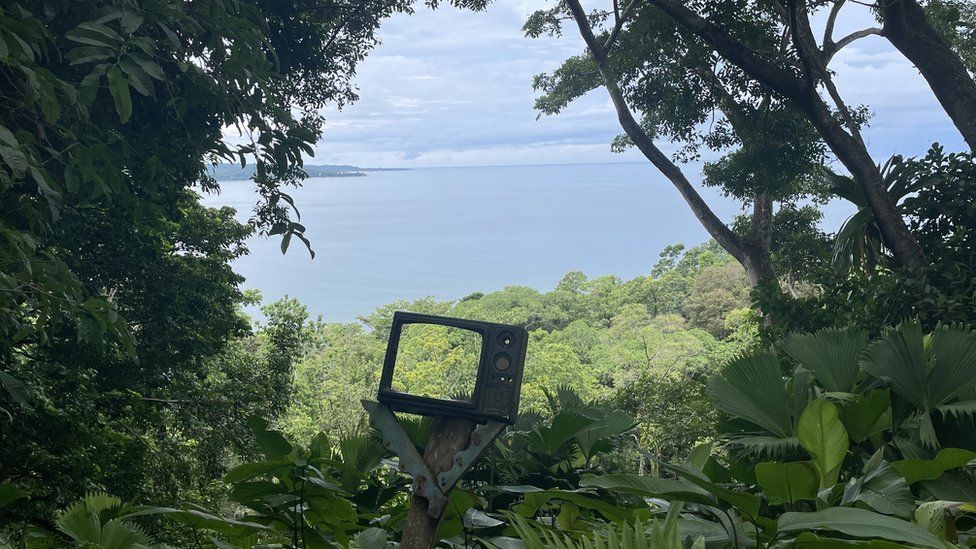
When Javier Lijo bought nine acres of deforested land atop a Panamanian island, he had an eye on the waves below.
A keen surfer, the Argentine had always dreamed of a leisurely life surfing the sea, away from the car-filled giant metropolises of Latin America. But a love of sustainable living took him in a different direction.
Over 20 years, and with the help of the local indigenous Ngäbe-Buglé people, he turned his land on Isla Bastimentos, on Panama's Caribbean coast, into a thriving, forested eco-haven.
Mr Lijo hopes his example can serve as a model for others who are looking to reforest cleared land
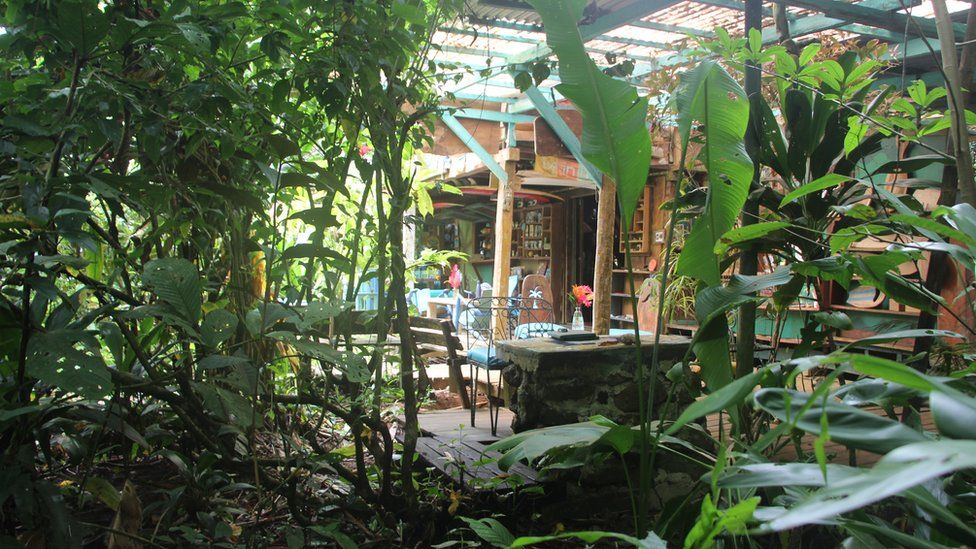
The 52-year-old pulls down the soaked leaves of one plant as he guides visitors on a tour of his Up in the Hill eco-farm, explaining that water retention in this particular species is so great "you can shower with it".
To the uninformed, his land looks wild. But much of it is farmed: one part has timber trees for making furniture, in another cacao trees for chocolate, near the top a garden for herbs, and everywhere throughout the forest a variety of fruit, vegetables and flowers.
Most of the products he sells locally.
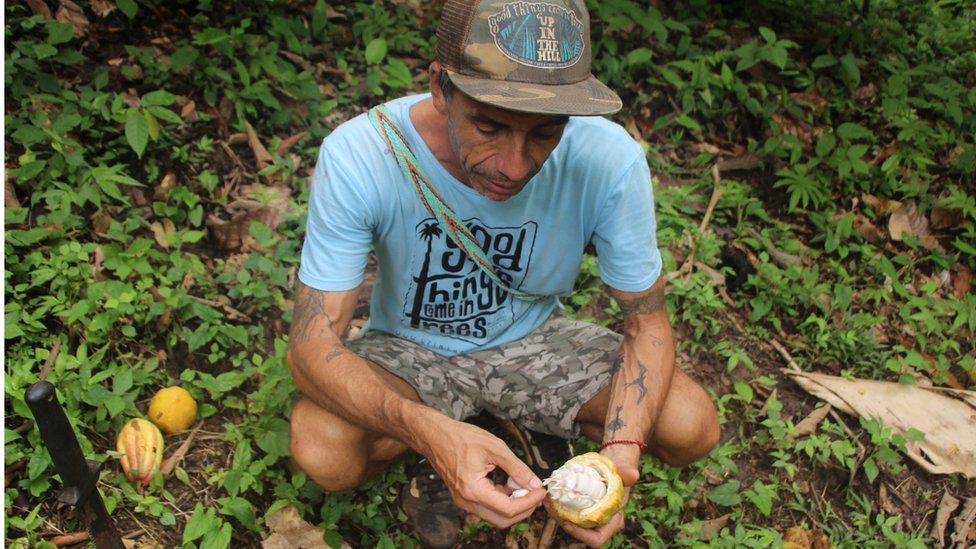
It is a big change from when Mr Lijo bought the land in 1996. Then it was cleared grazing land for cows, full of mosquitoes and flies, but he fell in love with it anyway.
As he began to manage the land, he read about the theory of permaculture - a sustainable way of living that emphasises recycling and reducing impact on the planet. From that, he had an idea for an eco-haven farm free of pesticides, where everything had a use.
He said that his vision was one where "education, working with the community, diversity of materials in the farm, different ways to make money and live" would all come together.
First he had to learn the basics, and for that, he turned to the indigenous people who have been managing Panama's forests for centuries.
The indigenous Ngäbe-Buglé have a number of nearby settlements.
Mr Lijo first met 53-year-old Benjamín Aguilar in 2000 when he asked him for help cutting trees on the farm.
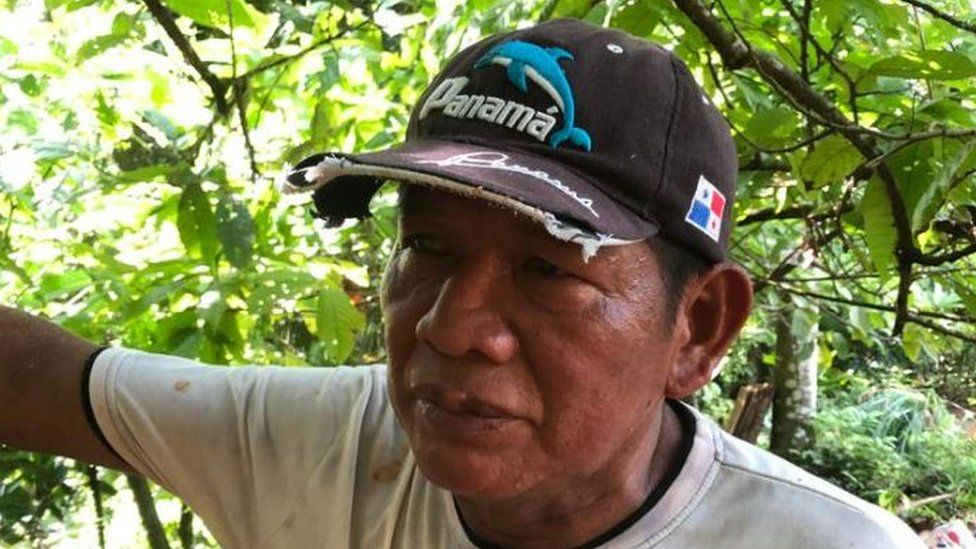 COURTESY JAVIER LIJO
COURTESY JAVIER LIJOSoon Mr Aguilar was advising him on how to manage the land, what to plant, and what trees to use for timber.
"I taught him how to produce cacao, how to ferment it and the time it takes to roast it," Mr Aguilar recalls.
Mr Lijo says that the Ngäbe-Buglé have shown him "everything" he knows about how to manage the land. "They have a lot of knowledge - it's generation after generation, hundreds and hundreds of years."
He is not the only one who has realised the value of indigenous knowledge to forest conservation, especially as more than half of Panama's mature forest is located in indigenous territory.
One of the world's foremost tropical biology research institutes, the Smithsonian Tropical Research Institute (STRI), runs several projects in which its scientists work alongside indigenous peoples.
Prof Catherine Potvin, a research associate at STRI who has worked with indigenous people in Panama for more than 20 years, explains why the approach works so well.
"Indigenous people cultivate to not necessarily become rich and make big enterprise. They don't have this concept of economic growth," she says.
"They're just seeking sustainability. They want to sustain themselves and their territory over the long term."
Indigenous land management also provides "green infrastructure" that can protect the environment, such as soil in intact forests which can absorb water to prevent flooding and release it during the dry season to prevent droughts.
Mr Lijo has noticed that the quality of the soil on his land has improved since he started reforesting. There is also more biodiversity with a variety of animals such as monkeys, birds, bees and armadillos returning to the farm which before was used to graze cattle.
Most notable are the strawberry dart frogs. A nearby beach is named after them, but their numbers had dwindled as tourism and clearing for farmland on the island threatened their habitat.
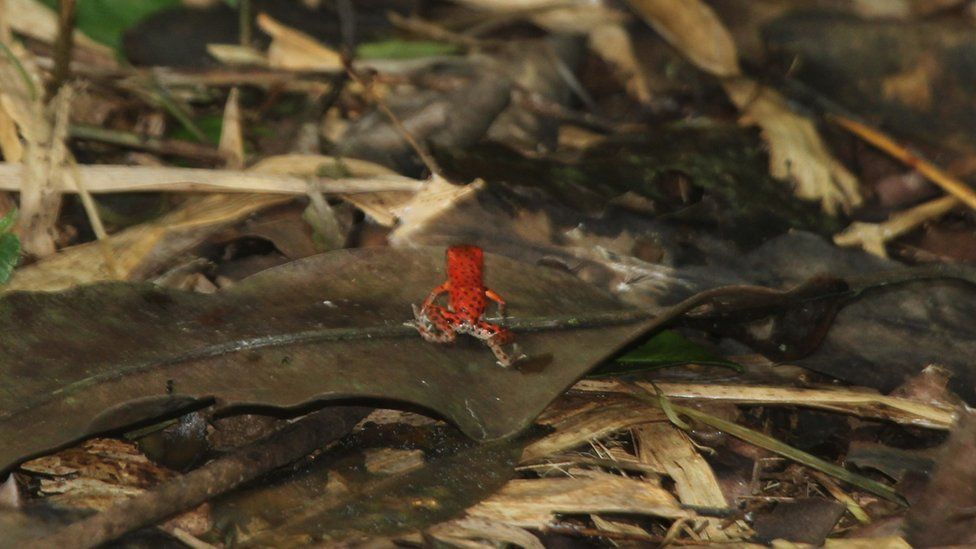
"For more than three years (after buying the land) we never saw the frogs but now they are everywhere," Mr Lijo explains.
His work is a microcosm of what is taking place elsewhere in Panama.
Jefferson S Hall is a staff scientist at STRI who has led reforestation efforts which have protected the Panama Canal from floods.
In October, the institute reached an agreement with the Ngäbe-Buglé to create a reforestation project on their territory which will capture carbon and improve the ecosystem.
"People were initially sceptical as they have seen outsiders make lots of promises, promises that they did not keep," Mr Hall says.
"We are at the beginning of a long-term relationship. We are at the start of our learning curve. We have been impressed, but not necessarily surprised, at how enthusiastic people are to plant trees."
As for Mr Lijo's project, Mr Hall is adamant that it may be small but he is convinced even small efforts have the potential to prove helpful.
"One of my often repeated phrases is that reforestation has to be done one landowner at a time," he says. "So, good for the person who has done it."
